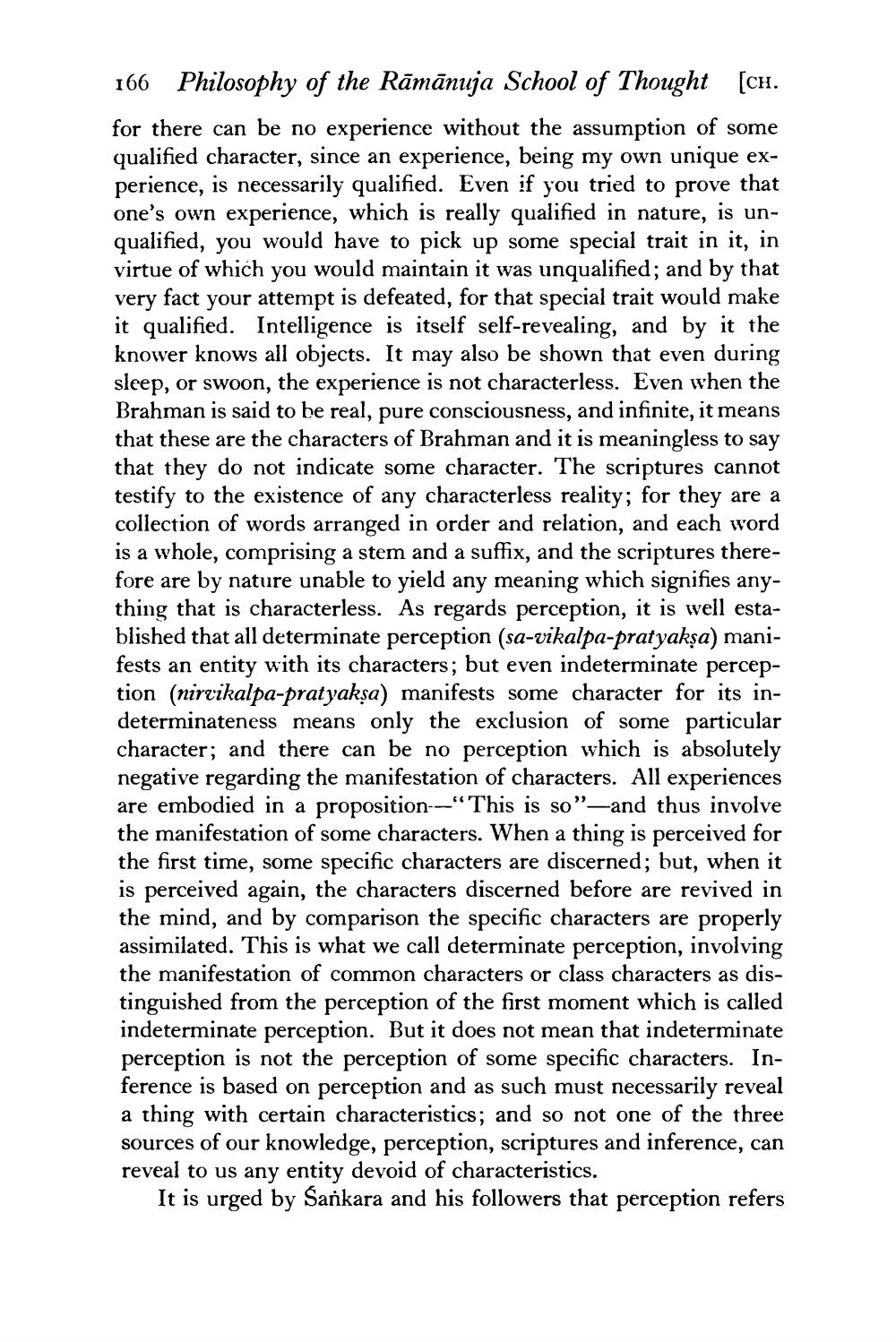________________
166 Philosophy of the Rāmānuja School of Thought [ch. for there can be no experience without the assumption of some qualified character, since an experience, being my own unique experience, is necessarily qualified. Even if you tried to prove that one's own experience, which is really qualified in nature, is unqualified, you would have to pick up some special trait in it, in virtue of which you would maintain it was unqualified; and by that very fact your attempt is defeated, for that special trait would make it qualified. Intelligence is itself self-revealing, and by it the knower knows all objects. It may also be shown that even during sleep, or swoon, the experience is not characterless. Even when the Brahman is said to be real, pure consciousness, and infinite, it means that these are the characters of Brahman and it is meaningless to say that they do not indicate some character. The scriptures cannot testify to the existence of any characterless reality; for they are a collection of words arranged in order and relation, and each word is a whole, comprising a stem and a suffix, and the scriptures therefore are by nature unable to yield any meaning which signifies anything that is characterless. As regards perception, it is well established that all determinate perception (sa-vikalpa-pratyaksa) manifests an entity with its characters; but even indeterminate perception (nirvikalpa-pratyaksa) manifests some character for its indeterminateness means only the exclusion of some particular character; and there can be no perception which is absolutely negative regarding the manifestation of characters. All experiences are embodied in a proposition -“This is so”—and thus involve the manifestation of some characters. When a thing is perceived for the first time, some specific characters are discerned; but, when it is perceived again, the characters discerned before are revived in the mind, and by comparison the specific characters are properly assimilated. This is what we call determinate perception, involving the manifestation of common characters or class characters as distinguished from the perception of the first moment which is called indeterminate perception. But it does not mean that indetermi perception is not the perception of some specific characters. Inference is based on perception and as such must necessarily reveal a thing with certain characteristics; and so not one of the three sources of our knowledge, perception, scriptures and inference, can reveal to us any entity devoid of characteristics.
It is urged by Sankara and his followers that perception refers




